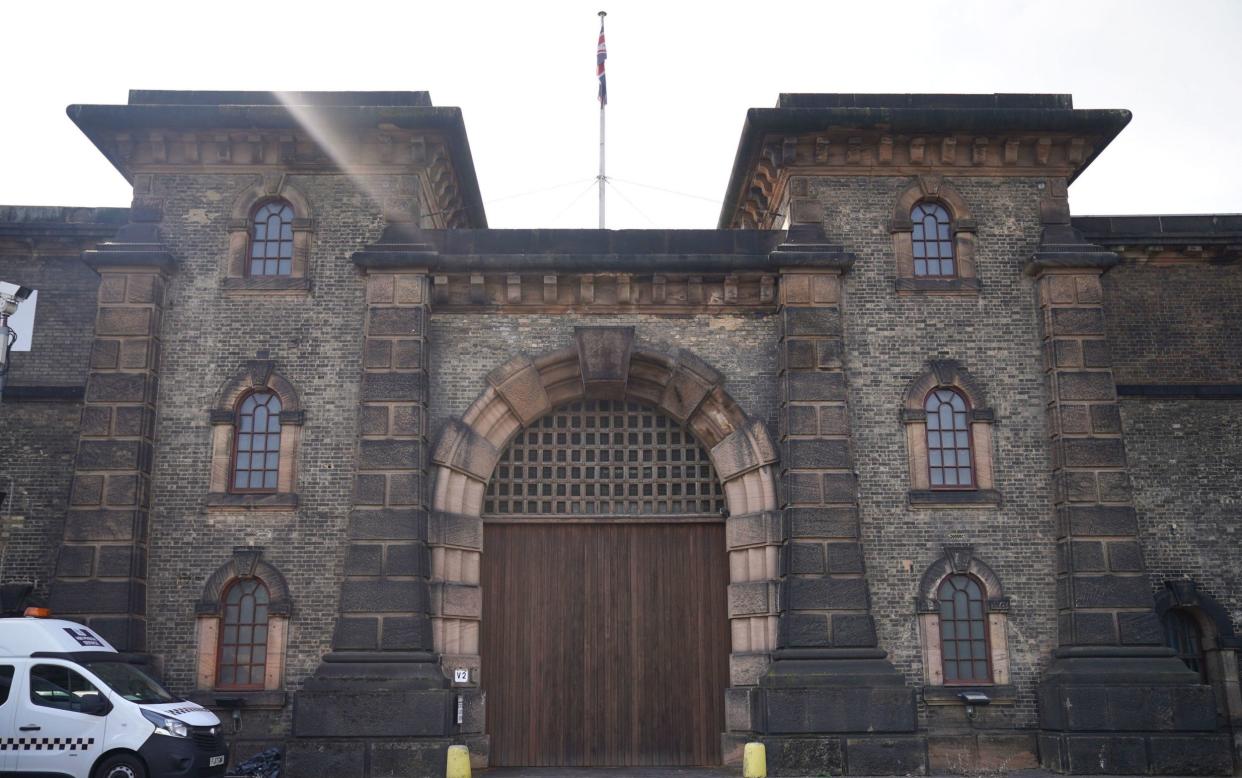HMP Wandsworth should be shut down

- Oops!Something went wrong.Please try again later.
A prison governor I worked for had a favourite saying to calm staff who panicked over the latest security howler: “The dogs bark, the caravan moves on.” Last week’s escape from HMP Wandsworth fuelled a great deal of excitement and theories, with many believing the suspect would never be found. The reality was ultimately rather more prosaic, with Daniel Khalife back in custody and facing 10 years for an escapade that looks more Norman Wisdom than James Bond.
But as prisons drop back into the “too difficult” section of the Justice Secretary’s in-tray, the saga has at least drawn public attention to the state of our jails and the competence of those senior bureaucrats paid to protect the public and permanently missing in action. Wandsworth is a dump. That’s no reflection on the Governor, who by all accounts is doing her best to square an impossible circle. There are too many prisoners and not nearly enough staff. Routinely, inspectors and independent monitors say up to nearly half of the required front-line officers are missing. Wandsworth is one of Britain’s most overcrowded and violent penal institutions, where inmates are locked up most of the day, and where staff are overwhelmed, inexperienced and scared.
The last reforming Governor of the establishment, Ian Bickers, lasted eight months in charge before moving on, perhaps because the Cameroonian rhetoric of a new generation of transformative custody failed to match the reality of this teeming, ungovernable institution. Bickers announced his resignation from the Prison Service as the group prisons director for London, including Wandsworth, just days before Khalife sailed through the gatelodge of his old nick, strapped to the underside of a vehicle, circumventing all security protocols.
We should be shutting down places like Wandsworth. In their latest report, the independent monitoring board – citizens who go into every prison as watchdogs – couldn’t even be sure what function it served as it oscillated between remand and resettlement. It is physically and culturally unfit to meet the idea of imprisonment with purpose, and would be more recognisable in the 19th century than the 21st. But so long as we remain addicted to this type of cheap, violent, nihilistic human warehousing, we can expect more escapes and less societal value for the billions we spend on criminal justice each year.
Khalife’s escape should lead us to ponder this enormous sum and why it is failing to deliver. The lion’s share goes on staff costs. When you read the old guff about prison costing more than Eton, this always neglects the reality that the vast majority of those tens of thousands per place goes on the human and physical security to keep prisoners in custody. The money a governor gets to keep individual prisoners together, body and soul, is a miniscule proportion of this figure. The disastrous cull of experienced prison staff from 2010-2016, followed by emergency recruitment, has seriously damaged prisons like Wandsworth, where battered and broken staff vote with their boots and leave faster than they can be recruited and trained.
Khalife defeated the security at Wandsworth, and it must be because people were not doing their jobs. It is possible that he was assisted by corrupt staff. Both incompetence and corruption put lives at risk but it is important to ask why these elements combine. Across swathes of our prison system, self-reported morale by staff is in freefall. The men and women who put on a uniform each day to serve the public and the courts by keeping criminals in secure custody do not believe they are safe in work, well led or properly rewarded. They perceive they are managed at the top by a disconnected and disinterested prison hierarchy more focused on pronouns than clean sheets.
We need a full accounting for Wandsworth. It should close. In the meantime, Alex Chalk should also be asking why prison bosses are blind or helpless in the face of terminal system-wide decline.

